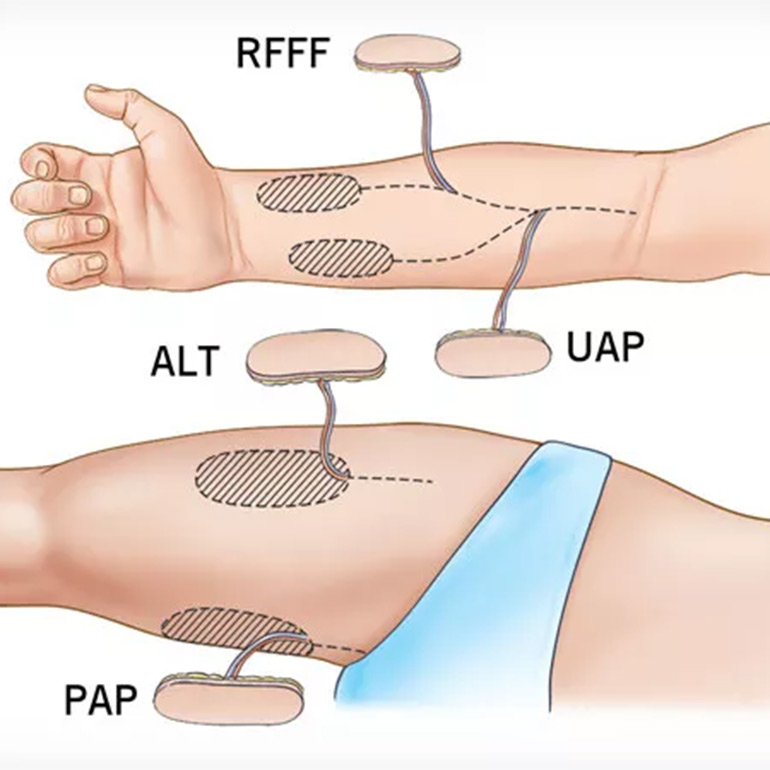
Free Flap Reconstruction
Free flap reconstruction is an advanced microsurgical technique that transfers tissue from one part of the body to another to reconstruct complex defects. This procedure involves moving tissue along with its blood supply, which is reconnected to vessels at the recipient site using microsurgical techniques.
Our microvascular surgeons specialize in these sophisticated procedures, which are often used following cancer resection, trauma, or for congenital defect correction. We tailor each reconstruction to the patient's specific needs for optimal functional and aesthetic outcomes.
Reconstruction Approach
We offer various free flap techniques based on the defect location, size, and functional requirements.
- Musculocutaneous flaps for bulk and coverage
- Fasciocutaneous flaps for thin pliable coverage
- Osseous flaps for bone reconstruction
- Innervated flaps for sensory restoration
- Chimeric flaps for complex 3D defects
Common Free Flap Options
We select the most appropriate donor site based on defect requirements and patient factors.
Soft Tissue Flaps
- Anterolateral thigh (ALT) flap
- Radial forearm free flap
- Latissimus dorsi flap
- Rectus abdominis flap
- Scapular/parascapular flap
Composite Flaps
- Fibula flap (bone + soft tissue)
- DCIA flap (iliac crest bone)
- Scapula flap (bone + soft tissue)
- Radial forearm (bone + soft tissue)
Benefits of Free Flap Reconstruction
Free tissue transfer offers significant advantages for complex reconstruction cases.
Clinical Advantages
- Brings healthy, vascularized tissue to damaged areas
- Customizable to specific defect requirements
- Superior healing compared to non-vascularized grafts
- Can include multiple tissue types in one transfer
Functional Outcomes
- Restores contour and appearance
- Provides durable long-term coverage
- Can restore sensation when nerves are coapted
- Allows for subsequent procedures if needed
Frequently asked questions
Understanding Free Flap Reconstruction
Free flap procedures have a high success rate of 95-98% in experienced centers. Success depends on careful patient selection, meticulous surgical technique, and postoperative monitoring. Our team has extensive experience with these complex procedures to ensure optimal outcomes.
The duration varies based on complexity but typically ranges from 6-12 hours. This includes time for tumor resection (if applicable), flap harvest, microsurgical anastomosis, and inset. Complex cases involving multiple tissue types or bilateral procedures may take longer.
Recovery involves hospital monitoring for 5-7 days, with careful flap observation. Patients then gradually resume activities over 4-6 weeks. Final results continue to improve over several months as swelling resolves and tissues settle. We provide detailed postoperative instructions and follow-up care throughout recovery.
